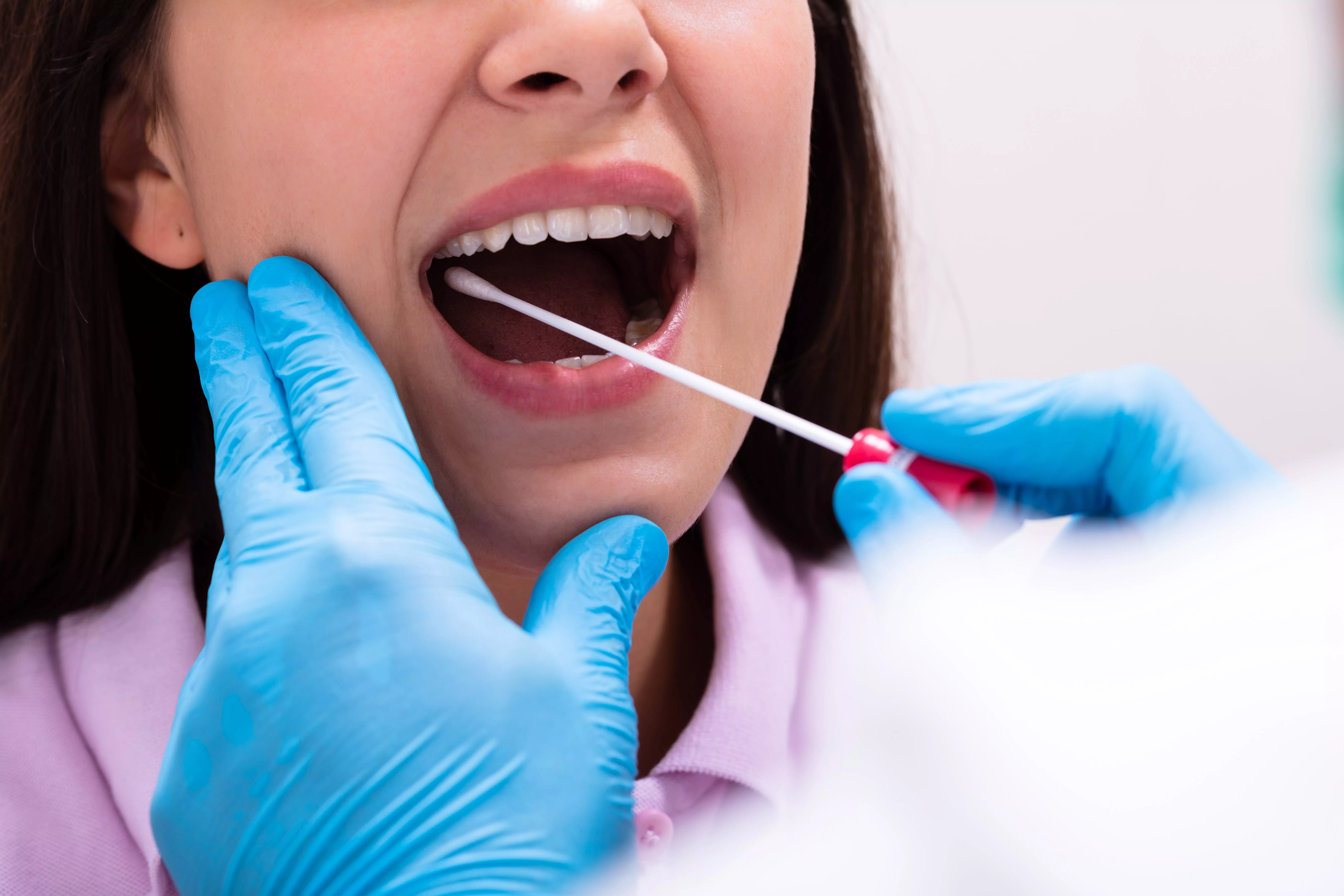
Shutterstock.com
Nearly 100% of patients who accessed a community pharmacy ‘sore throat test and treat’ (STTT) service said they would return to their pharmacy for subsequent sore throat symptoms, a survey has found.
Of the 510 patients who responded, 98% said they were satisfied with the STTT service and, after using the service, 99% of respondents stated that they would return to a pharmacy for subsequent sore throat symptoms.
The researchers analysed free-text comments from users of the service and identified three themes that contributed to the patients’ satisfaction: professionalism of the pharmacy team; convenience and accessibility; and perceived value of the service.
The STTT on-the-spot throat swab scheme — which aims to screen for the presence of group A Streptococci bacteria and aid decisions about whether antibiotics are appropriate — was initially launched in selected pharmacies in the Cwm Taf Morgannwg University and Betsi Cadwaladr University health board areas in autumn 2018. The service was launched as part of NHS Wales’ ‘Choose pharmacy’ service and was due to be expanded to cover all seven health boards, although it has now been suspended because of the COVID-19 pandemic.
“It is clear from our results that patients valued how the service provides an additional option for them when they need to see a healthcare professional for a sore throat, with comments around convenience, accessibility and flexibility around their work and family commitments,” said Efi Mantzourani, a reader in pharmacy practice at Cardiff University and lead author of the study.
“All of these factors are important in a healthcare context that is increasingly focusing on tackling inequalities of health.”
Mantzourani added that multiple patients also reported increased understanding of the principles of antimicrobial stewardship, which she said reaffirmed the value of pharmacists in the global fight against antimicrobial resistance.
“Indeed, the high acceptability of the service was not found to be dependent on patients being supplied antibiotics,” she said.
Paul Harris, chair of the Welsh Pharmaceutical Committee, said he was “delighted” that the study highlighted the professionalism shown by community pharmacy teams and commended them on achieving a high level of patient satisfaction.
“We believe that this is an important step forward in redirecting the management of uncomplicated conditions from GPs into pharmacist-led services and would like to see further rollout of the service, into all community pharmacies across Wales,” he said.
A spokesperson for Community Pharmacy Wales said that, alongside the accessibility of the system and its ability to take pressure off GPs, another strength of the service was “the nature of the intervention”.
“In many cases, a sore throat is the result of a viral rather than bacterial infection, which means antibiotics will not work, and self-care and rest are the best course of action. One of the big positives of the STTT was the significant reduction in the prescription of unnecessary antibiotics.”
“The service is currently suspended and has been since March [2020], but steps are being taken to get the programme back on track through the development of a new clinical pathway,” they added.
- This article was corrected on 13 August 2020 to highlight that the sore throat point-of-care test does not diagnose a viral infection but screens for the presence of group A Streptococci bacteria


